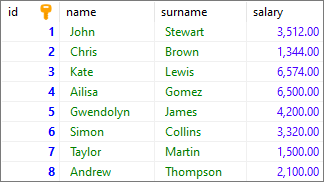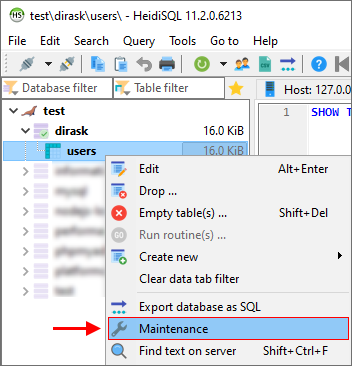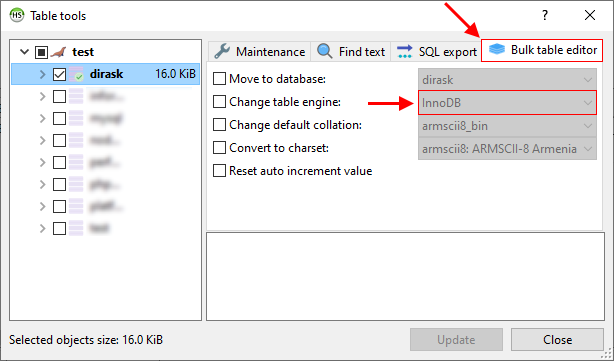EN
MySQL - how to check existing table engine? (HeidiSQL example)
0
points
In this article, we would like to show you how to check the existing table engine in MySQL.
Quick solution:
SHOW TABLE STATUS WHERE NAME = 'table_name';
Practical example
To show how to check the existing table engine, we will use the following table:

Note:
At the end of this article you can find database preparation SQL queries.
Example 1
In this example, we will use a query to check our users table engine.
Query:
SHOW TABLE STATUS WHERE NAME = 'users';
Result:

Example 2
In this example, we will show you how to check users table engine in HeidiSQL.
Step 1: Expand your database and right-click on the table. Then choose Maintenance.

Step 2: Choose Bulk table editor and you will see the table engine right below your database name. In our case, it's InnoDB engine.

Database preparation
create_tables.sql file:
CREATE TABLE `users` (
`id` INT(10) UNSIGNED NOT NULL AUTO_INCREMENT,
`name` VARCHAR(50) NOT NULL,
`surname` VARCHAR(50) NOT NULL,
`salary` DECIMAL(15,2) NOT NULL,
PRIMARY KEY (`id`)
);
insert_data.sql file:
INSERT INTO `users`
( `name`, `surname`, `salary`)
VALUES
('John', 'Stewart', '3512.00'),
('Chris', 'Brown', '1344.00'),
('Kate', 'Lewis', '6574.00'),
('Ailisa', 'Gomez', '6500.00'),
('Gwendolyn', 'James', '4200.00'),
('Simon', 'Collins', '3320.00'),
('Taylor', 'Martin', '1500.00'),
('Andrew', 'Thompson', '2100.00');